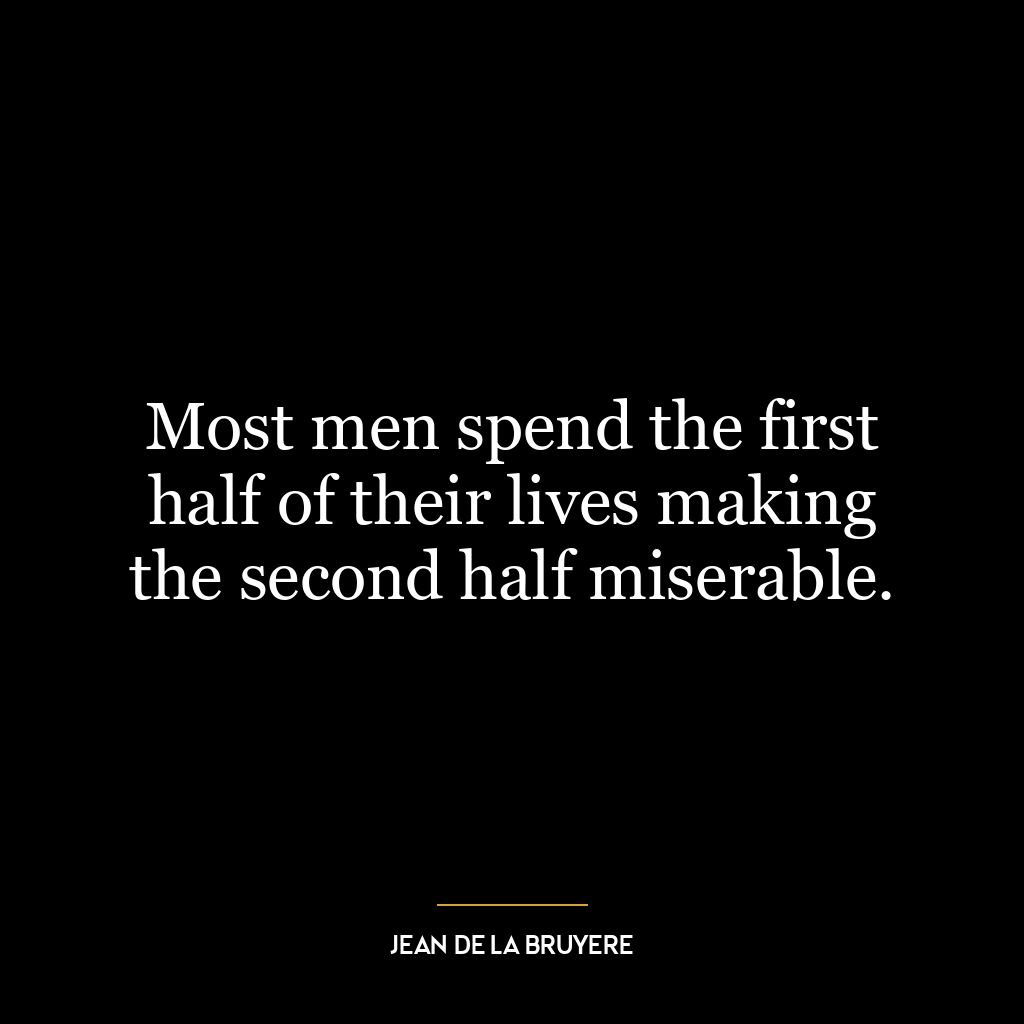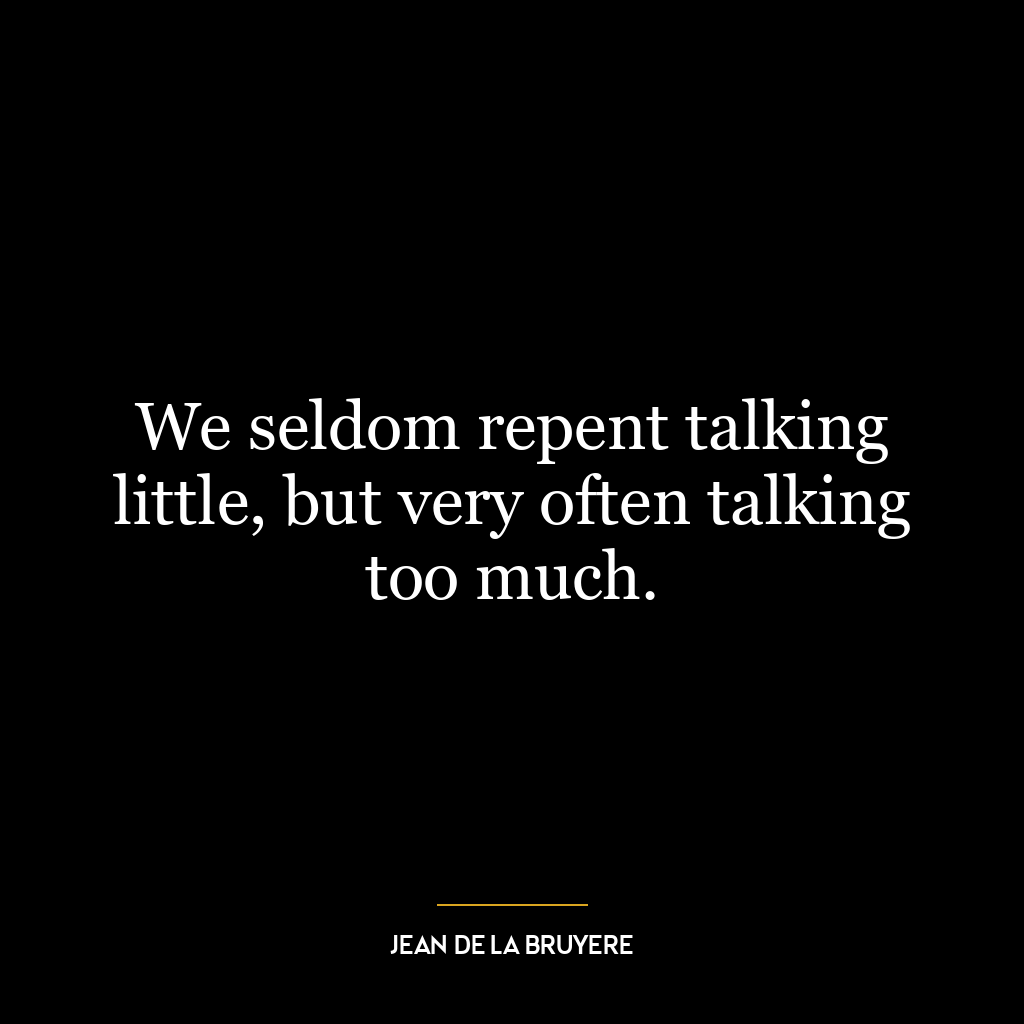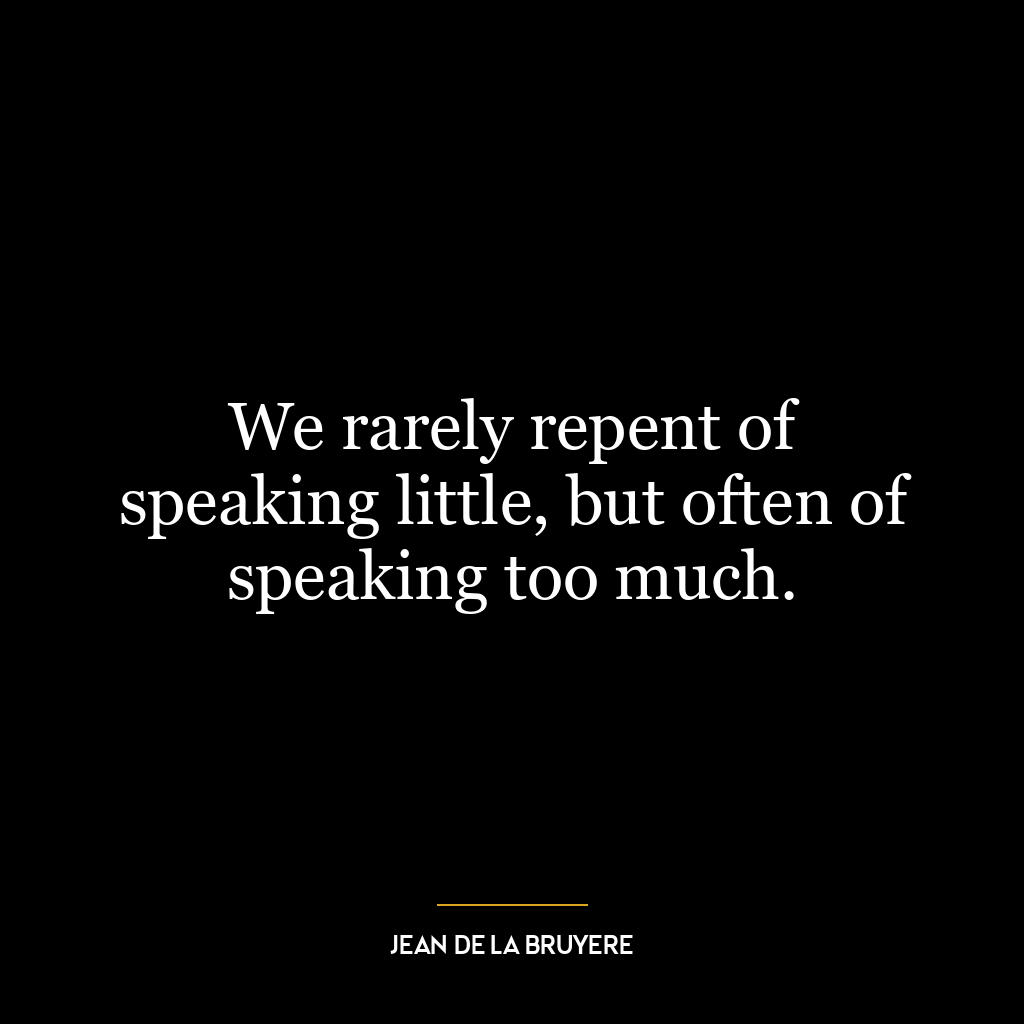This quote by Socrates suggests that in life, particularly in matters of love and relationships, no path is free from regret. Whether one chooses to marry or remain celibate, they will inevitably face challenges and moments of doubt, leading to some level of regret. This is not to say that either path is wrong or right, but rather that they both come with their own set of unique struggles and rewards.
The quote highlights the inherent imperfection of human decisions and the inevitable dissatisfaction that comes with life’s choices. It’s a reflection of the human tendency to question our choices, especially when faced with difficulties. When we choose one path, we often wonder about the road not taken and whether it might have led to a happier or more fulfilling life.
Applying this idea to today’s world, it serves as a reminder that every choice we make, every path we choose to walk down, will have its ups and downs. In the context of personal development, it underscores the importance of understanding that regret is a natural part of life and should not deter us from making decisions.
In relation to marriage or celibacy, it’s crucial to remember that neither guarantees happiness or fulfillment. Whether one decides to share their life with a partner or choose a solitary path, both will present challenges. The key is to make peace with our choices and understand that regret or questioning is not a sign of making the wrong decision, but a part of the human experience.
In essence, Socrates’ quote is a call to embrace the uncertainty of life and to accept that regret is not a sign of failure, but a sign of a life lived and choices made. It encourages us to make our decisions with conviction, accept the consequences, and find contentment in our chosen path.











